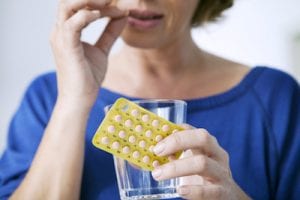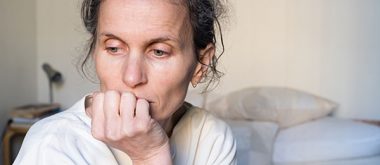Bioidentical hormones are drawn from nature and mirror hormones made by the body. They are used to mitigate the signs of menopause.
When the body stops making hormones at menopause, hot flashes, insomnia, vaginal dryness and other ills seem too strong to handle. Since the 2002 debacle with hormone therapy, women have suffered mostly in silence, fearful of the side effects of any kind of hormone treatment. They needed safer methods of mitigating the debilitating effects of menopause. The medical industry began compounding bioidentical hormones, customizing them to each woman’s needs.
A Word About Hormones
Hormones control everything inside the body. From body temperature to hunger, from growing to the body’s signals, and from mood to the immune system, hormones direct the show. When an imbalance happens, the body’s normal reactions are thrown off. We sweat too much, eat too much or too little, our sleep cycles are unbalanced and we are irritable. For menopausal women, the problems is even worse.
The endocrine system simply stops making hormones. Thus, women get hot flashes, can’t sleep, lose their interest in sex, and are moody and irritable. As women age, their bodies’ systems are unbalanced. They need help, but what can they do?
What Is Bioidentical Hormone Therapy?
Some plants, such as soy and yams, produce hormones identical to those found in the body. They produce a substance called estriol, which is a component of estrogen. The human hormones estrogen, progesterone, and testosterone are mirrored in bioidentical hormones.
Bioidentical hormones are lab-produced. Their molecular structure is the same as that of hormones produced by the body. Any hormone can be produced as bioidentical—cortisol, parathyroid hormone, thyroid hormone, insulin, adrenaline, norepinephrine, and so on. Upon introduction, the body thinks its hormones are present and accounted for. The hormones begin to do their job and hormonal balance is restored.
What Do Bioidentical Hormones Help?

- Depression and anxiety
- Inability to concentrate
- Memory loss
- Trouble sleeping
- Weight gain
- Facial hair growth
- Thinning hair
- Loss of bone mass
- Loss of muscle mass
- Dry mouth, eyes and skin
- Lack of sex drive
How Are Bioidentical Hormones Prescribed?
The most popular method of discovering the need for bioidentical hormone therapy is a saliva test, although doctors use urine and blood tests for the same purpose. The hormones come in varying forms, such as creams, patches, pellets, injections, and gels.
The FDA chimes in with the advice that users should begin with the lowest dose possible that gets results. Users should also take the hormones for the shortest possible time, says the FDA.
What About Side Effects?
Side effects happen upon taking the first dose of the hormone. The body has to get used to it, and the dose might need to be changed. Side effects’ severity may decrease as the body accustoms itself to the introduction of the hormones. Some side effects include the following:
- Cramps
- Bloating
- Gaining weight
- Fatigue
- Headache
- Facial
- Hair growth
- Blurry vision
- Mood swings
- Indigestion
- Spotting
- Tender breasts
If your symptoms are enough to make you reach for medication, talk to your primary care physician. Tell them your symptoms and their intensity and frequency so that you can decide together if bioidentical hormones are for you. Your doctor will write down the specific formula that will help you most. A compounding pharmacy will then complete the task.





